Why Russia has nukes but not much money
A Soviet hangover helps keep the economy down

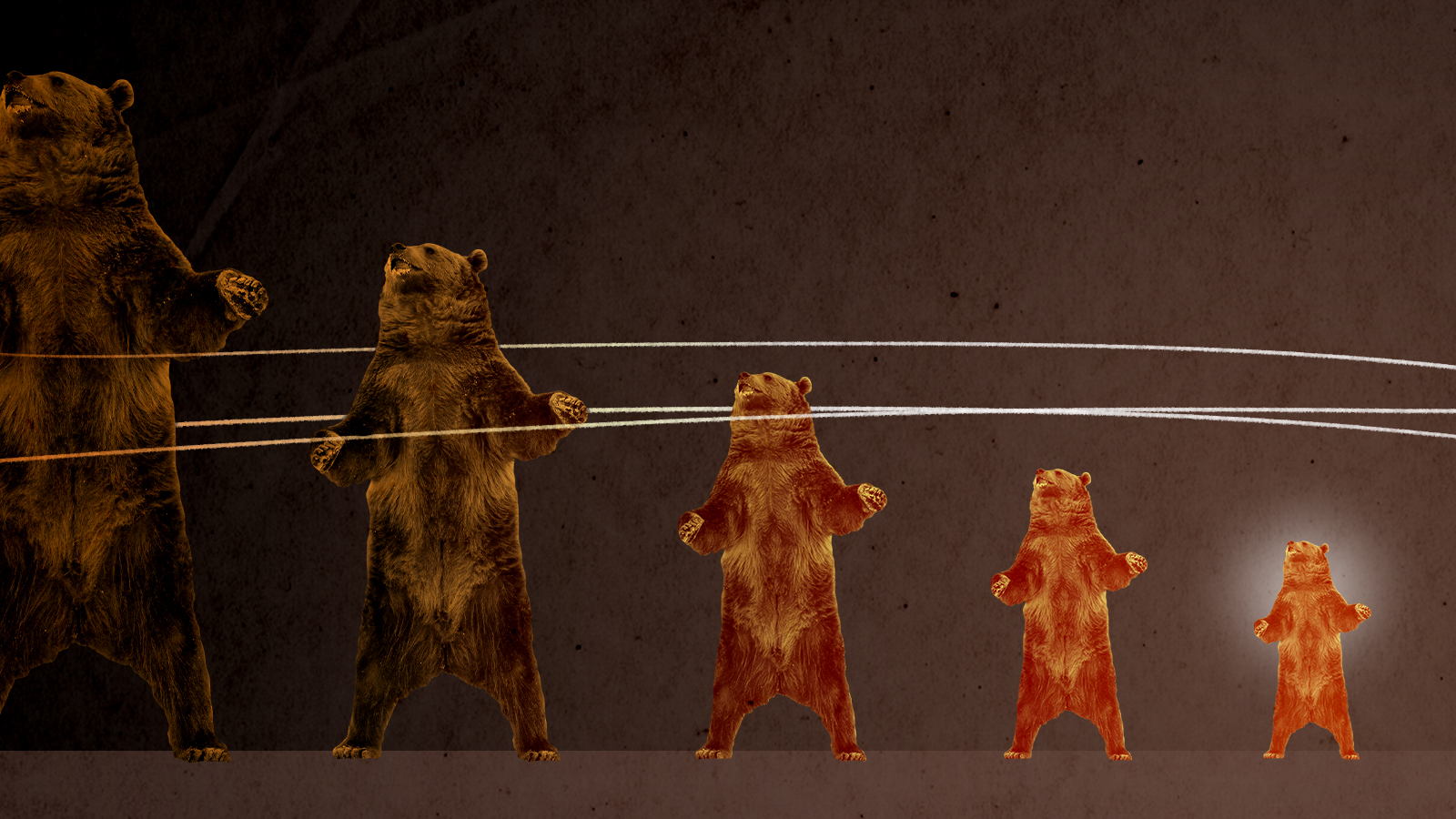
A free daily email with the biggest news stories of the day – and the best features from TheWeek.com
You are now subscribed
Your newsletter sign-up was successful
Many people around the world, including lots of Ukrainians and Russians, were shocked when Russia invaded Ukraine. And those closely following the news were soon hit with a second surprise:
Vladimir Putin's Russia has a gross domestic product of about $1.6 trillion, around the size of Australia's economy and only a bit bigger than Spain's.
The European Union's economy, on the other hand, is 10 times as big as Russia's.
The Week
Escape your echo chamber. Get the facts behind the news, plus analysis from multiple perspectives.

Sign up for The Week's Free Newsletters
From our morning news briefing to a weekly Good News Newsletter, get the best of The Week delivered directly to your inbox.
From our morning news briefing to a weekly Good News Newsletter, get the best of The Week delivered directly to your inbox.
And Russia's brutal war on Ukraine is almost surely going to reduce that economic ranking.
Capital Economics, a U.K.-based consultancy, estimates that by the end of the year, the impact of economic sanctions will leave Russia the world's 14th largest economy, down from 11th. That's about the same size as Mexico.
Of course, those GDP stats don't fully capture Russian geopolitical power. It's a significant global producer of hydrocarbons and most industrial metals. Then there's its nuclear arsenal, the planet's largest. Overall, however, Putin's Russia remains very much what it was back in its Soviet Union days. Analysts called called the old USSR a "dwarf with the right arm of a giant" or "Upper Volta with rockets" to illustrate the disparity between Soviet economic and military capabilities.
On paper the continued relevance of those metaphors seems a mystery. Russia is a nation with vast natural resources, a well-educated population, a deep scientific base, and an economy long freed from the heavy shackles of communist central planning. Why isn't it a lot richer?
A free daily email with the biggest news stories of the day – and the best features from TheWeek.com
Indeed, on a per person basis, Russia is only the 67th richest nation in the world. And while GDP per capita in the former captive nations of Hungary, Poland, and Czechia has converged with that of the United States over the past 30 years, Capital Economics notes, Russian income has fallen further behind.
The typical economist's explanation highlights two main factors. First, the seven-decade communist experiment left Russia a mess. Soviet Russia — lacking private prosperity, a price system, or incentives to innovate — had a deeply inefficient economy. University of Warwick economist Mark Harrison offered this eulogy in 2017: "During its lifetime, many other countries made similar or greater social and economic gains with more consent and less violence. On its centenary, the Soviet economy should be remembered but not mourned."
The second explanation keys off the first. Post-Soviet Russia never really recovered from the Soviet experiment, despite all its advantages in people and resources. According to the 2020 Index of Economic Freedom, "Corruption and impunity are pervasive, especially in public procurement, media, national defense, and public utilities."
And while having lots of oil and natural gas may seem a huge asset, the privilege of those resources has hindered the development of an advanced industrial base.
To those common explanations, I would add a third, one based on the work of Harvard University science historian Loren Graham. In his 2013 book, "Lonely Ideas: Can Russia Compete?," Graham notes a long history of Russian economic frustration, stretching back to the Tsars, through the communists, and right up to Putin.
Although Russians are behind numerous technological firsts — in areas such as radio, computers, nuclear technology, and space — inventions must eventually lead to widespread commercial innovation for an economy to advance.
And yet, Graham asks, "Where is the Russian Thomas Edison, Bill Gates, or Steve Jobs? Actually, they exist, but you have never heard of them because they fell flat on their faces when they tried to commercialize their inventions in Russia."
He points to a 2010 survey of Russian scientists and engineers on their attitudes toward their work. This response was typical: "We do not have an innovation culture — no experience, no traditions. Our scientists, they are all still Soviet in their attitudes, for them business is something dirty. Our scientific culture is practically untouched by the business entrepreneurial spirit."
Indeed, Graham adds, this anti-business attitude predates the communist experience. In the Tsarist period, he writes, intellectuals saw "biznes" as a "disreputable activity [and] commerce as below their dignity. In recent post-Soviet years, the connection of successful businesspeople, especially the oligarchs, with corruption has only deepened suspicion of business operations."
So, don't expect Russia to move up those economic league tables, even if it is able to successfully devour Ukraine.
There's also an economic lesson here for America. Education and science research are important for long-term prosperity. But so is a law-governed society that admires business and respects entrepreneurial risk taking.
It remains profoundly weird, for instance, that President Biden frequently ignores Elon Musk's Tesla when talking about the electric vehicle efforts of American automakers. (He did it again in his State of the Union address.)
In an excellent 2020 paper, economists Peter Cauwels and Didier Sornette at ETH Zurich, find a decline in game-changing scientific discovery and research in rich countries. And they think a more risk-averse culture is a culprit.
"Why not promote the risk-taker, the explorer, the creative inventor as a new type of social influencer acclaimed like a Hollywood or sports star?" they write.
Something to think about when you hear lefties in the U.S. assert that "every billionaire is a policy failure." The Russians got there first, and it hasn't worked out too well for them.
James Pethokoukis is the DeWitt Wallace Fellow at the American Enterprise Institute where he runs the AEIdeas blog. He has also written for The New York Times, National Review, Commentary, The Weekly Standard, and other places.
-
 How the FCC’s ‘equal time’ rule works
How the FCC’s ‘equal time’ rule worksIn the Spotlight The law is at the heart of the Colbert-CBS conflict
-
 What is the endgame in the DHS shutdown?
What is the endgame in the DHS shutdown?Today’s Big Question Democrats want to rein in ICE’s immigration crackdown
-
 ‘Poor time management isn’t just an inconvenience’
‘Poor time management isn’t just an inconvenience’Instant Opinion Opinion, comment and editorials of the day
-
 The billionaires’ wealth tax: a catastrophe for California?
The billionaires’ wealth tax: a catastrophe for California?Talking Point Peter Thiel and Larry Page preparing to change state residency
-
 Bari Weiss’ ‘60 Minutes’ scandal is about more than one report
Bari Weiss’ ‘60 Minutes’ scandal is about more than one reportIN THE SPOTLIGHT By blocking an approved segment on a controversial prison holding US deportees in El Salvador, the editor-in-chief of CBS News has become the main story
-
 Who is paying for Europe’s €90bn Ukraine loan?
Who is paying for Europe’s €90bn Ukraine loan?Today’s Big Question Kyiv secures crucial funding but the EU ‘blinked’ at the chance to strike a bold blow against Russia
-
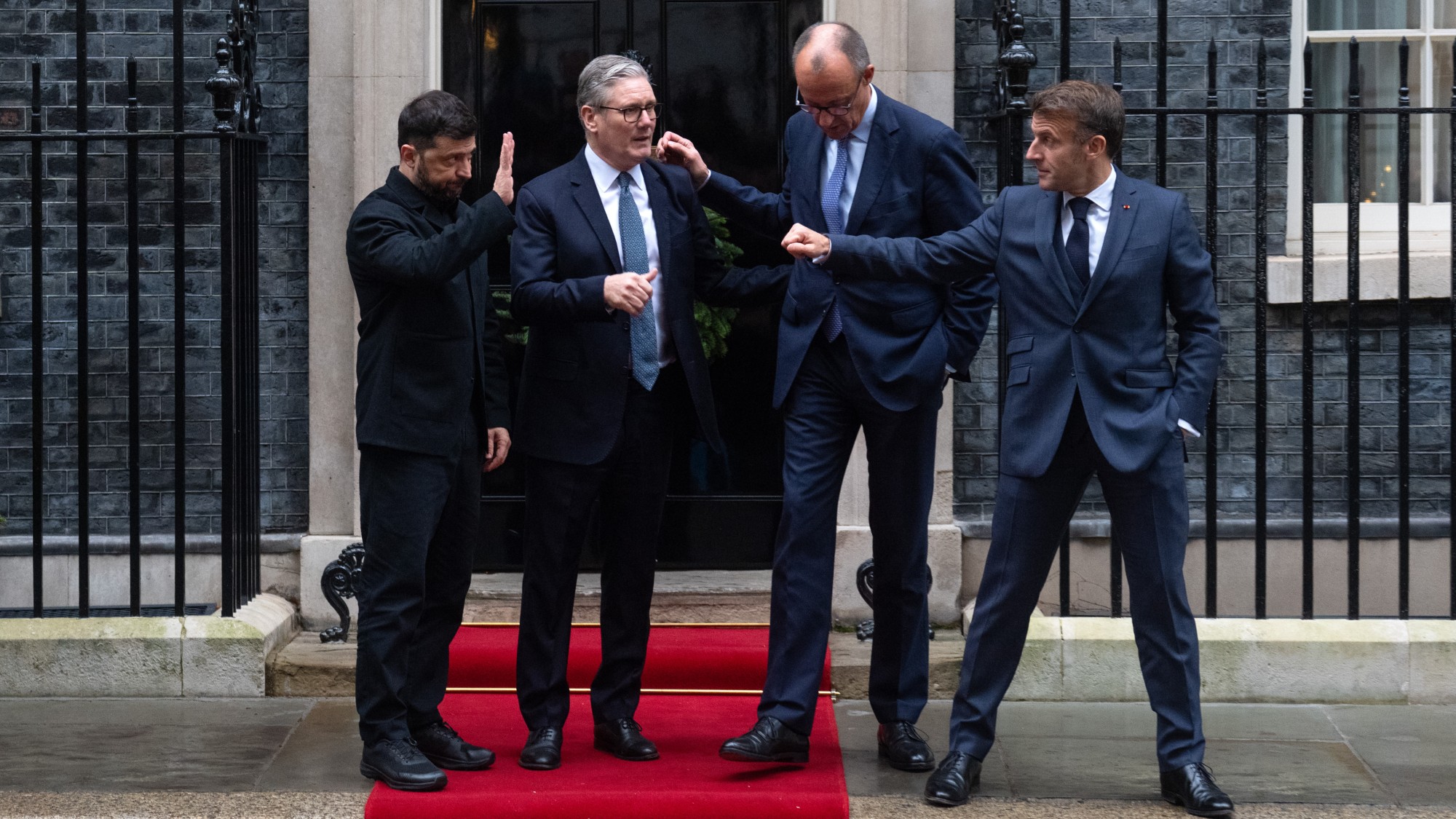 Will there be peace before Christmas in Ukraine?
Will there be peace before Christmas in Ukraine?Today's Big Question Discussions over the weekend could see a unified set of proposals from EU, UK and US to present to Moscow
-
 Moscow cheers Trump’s new ‘America First’ strategy
Moscow cheers Trump’s new ‘America First’ strategyspeed read The president’s national security strategy seeks ‘strategic stability’ with Russia
-
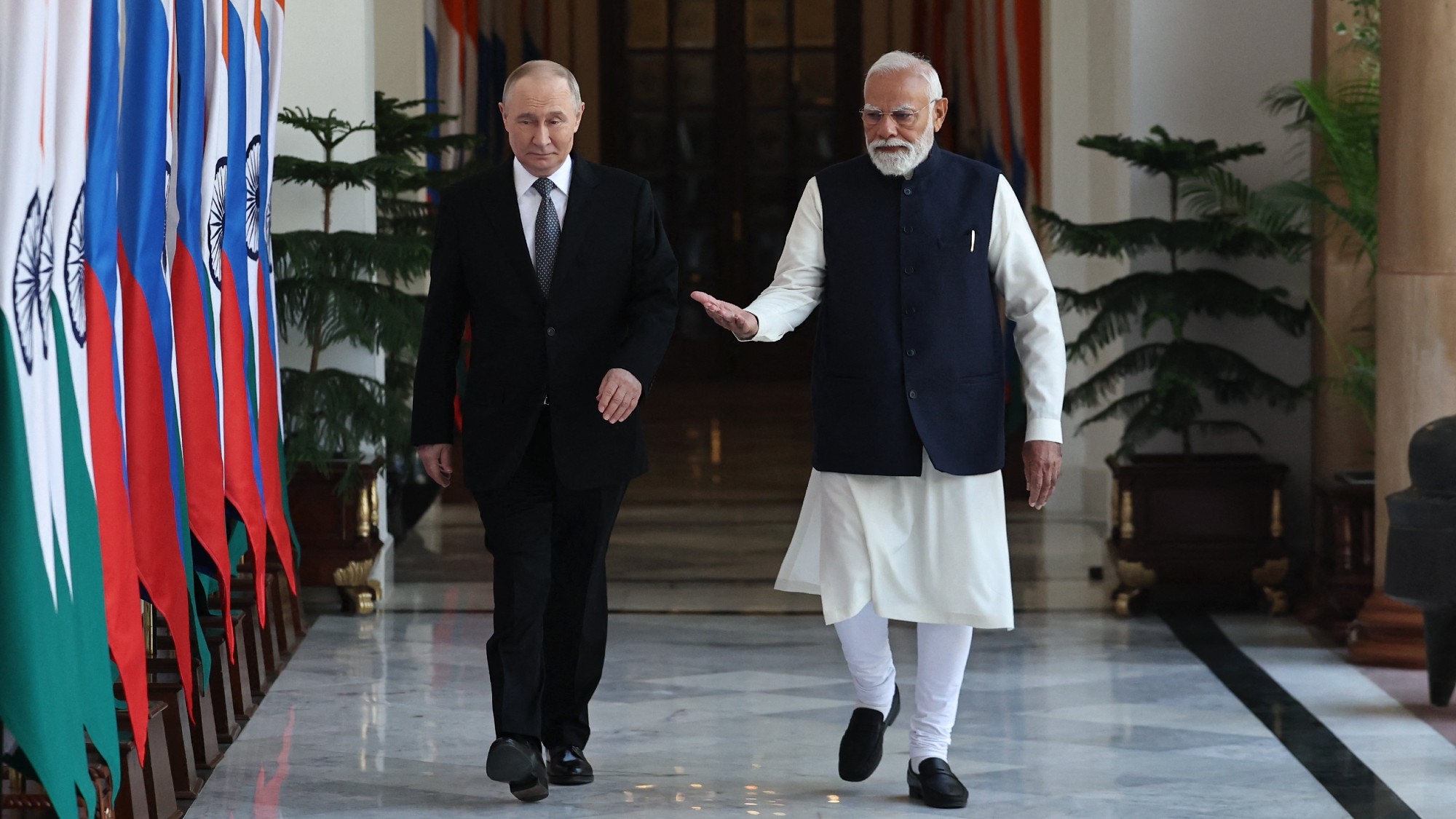 Is a Putin-Modi love-in a worry for the West?
Is a Putin-Modi love-in a worry for the West?Today’s Big Question The Indian leader is walking a ‘tightrope’ between Russia and the United States
-
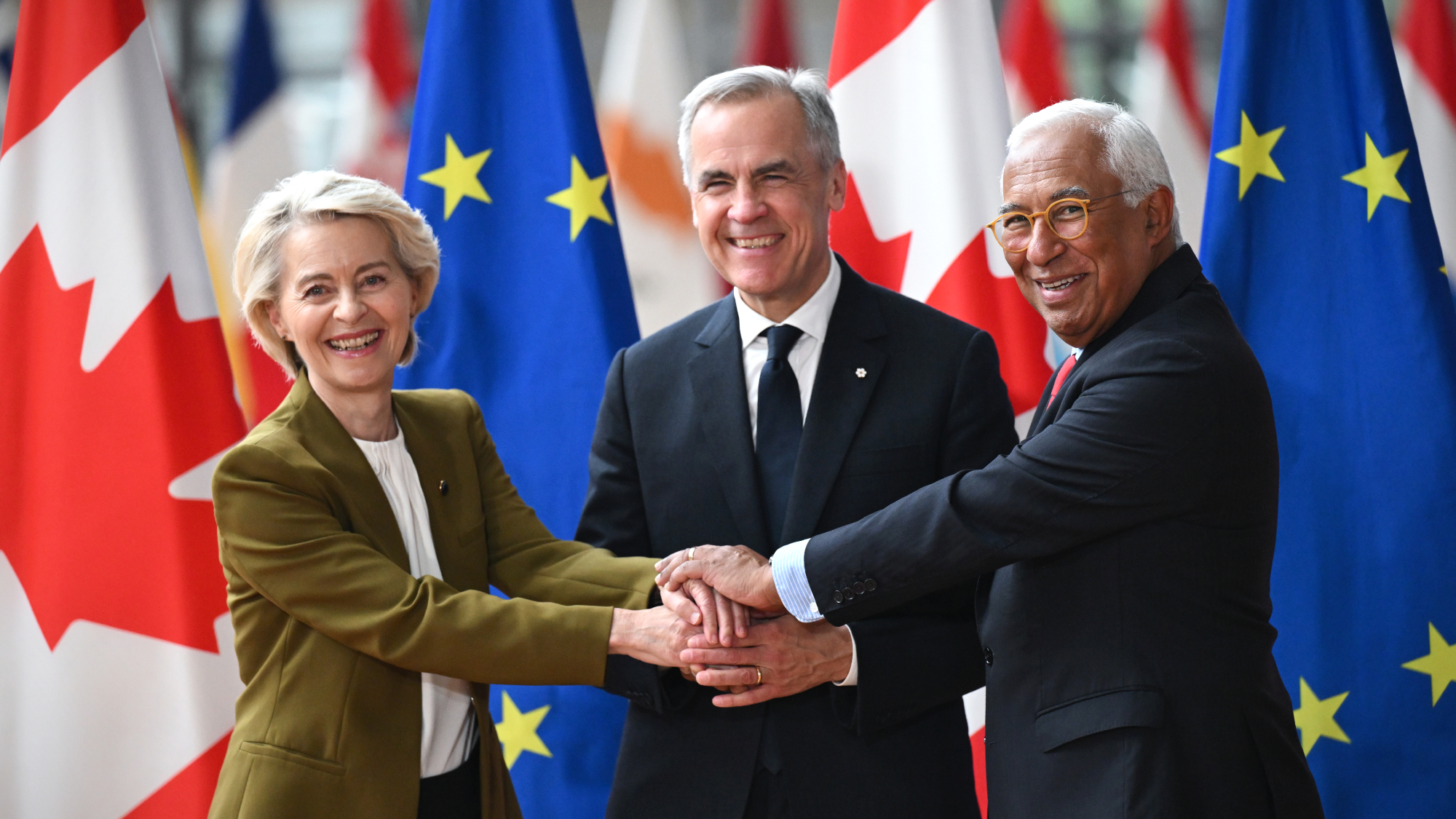 Canada joins EU’s $170B SAFE defense fund
Canada joins EU’s $170B SAFE defense fundspeed read This makes it the first non-European Union country in the Security Action for Europe (SAFE) initiative
-
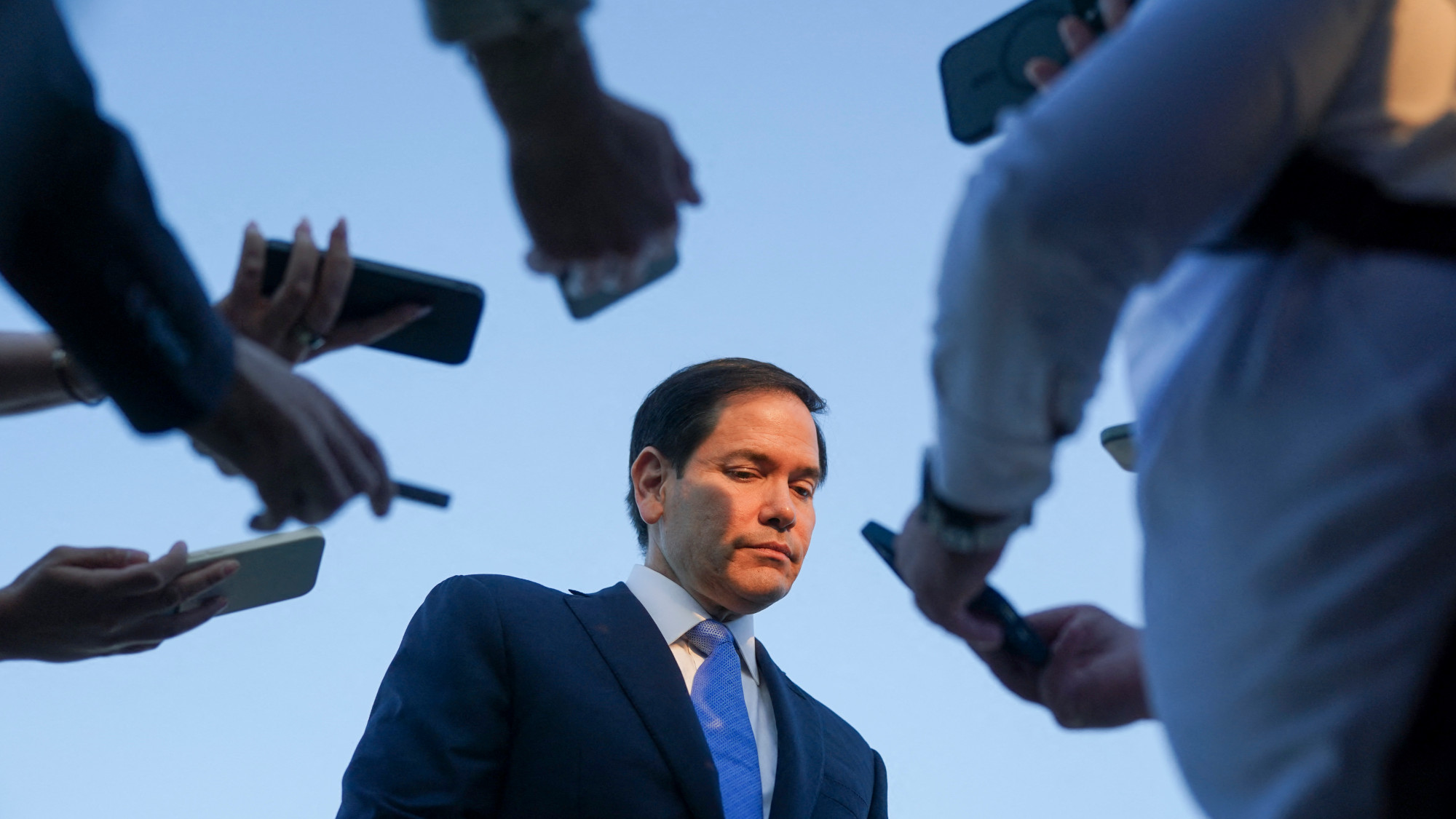 Ukraine and Rubio rewrite Russia’s peace plan
Ukraine and Rubio rewrite Russia’s peace planFeature The only explanation for this confusing series of events is that ‘rival factions’ within the White House fought over the peace plan ‘and made a mess of it’
